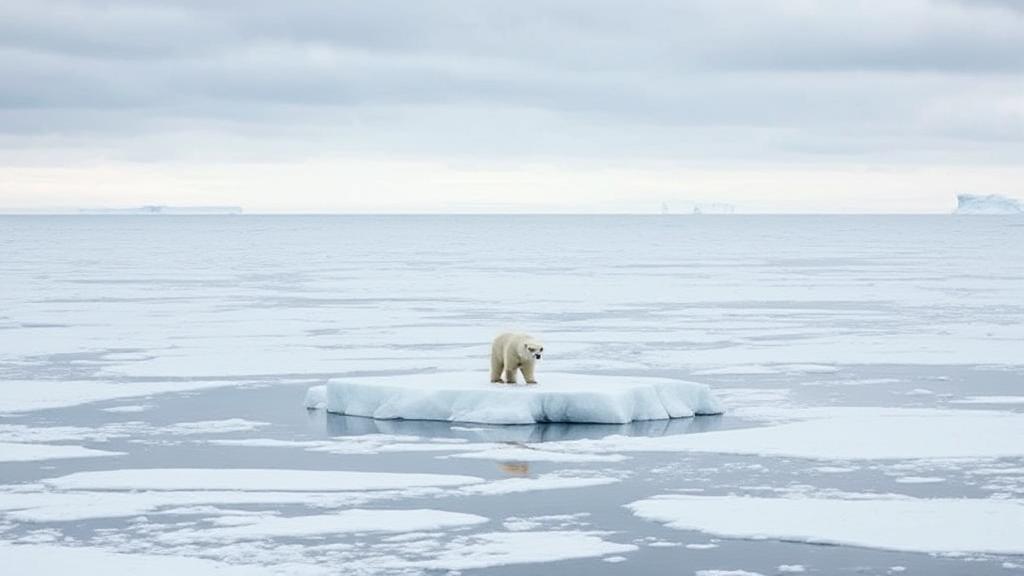The Role of Polar Bears in the Arctic Ecosystem
Polar bears (Ursus maritimus) are apex predators that play a crucial role in maintaining the delicate balance of Arctic ecosystems. Their primary diet consists of seals, which they hunt on sea ice, helping to regulate seal populations and ensure a balanced ecosystem.
Key Functions:
- Population Control: Polar bears regulate seal populations, preventing overpopulation
- Nutrient Distribution: They contribute to nutrient cycling through prey consumption and remains
- Indicator Species: Their health reflects the overall condition of the Arctic ecosystem
Ecological Impacts of Extinction
Food Web Disruption
The absence of polar bears would trigger significant changes throughout the Arctic food web:
- Seal Population Effects
"A dramatic increase in seal populations could result in the overconsumption of various fish species, potentially destabilizing marine food webs and affecting commercial fishing industries." - Arctic Research Journal
- Marine Ecosystem Changes
- Fish population dynamics
- Plankton distribution
- Nutrient cycling in Arctic waters
- Carbon sequestration processes
Terrestrial Ecosystem Impact
The disappearance would affect land-based ecosystems through:
Scavenging Species
- Arctic foxes
- Ravens
- Various insect species
- Microorganisms
Vegetation Patterns
- Tundra vegetation growth
- Soil composition
- Carbon storage capacity
Environmental Consequences
Climate Change Acceleration
The extinction of polar bears could accelerate climate change through various feedback loops:
- Marine Carbon Cycle
- Disrupted phytoplankton populations
- Altered carbon sequestration
- Increased ocean acidification
- Tundra Effects
- Enhanced permafrost thaw
- Increased methane release
- Changed soil carbon storage
Sea Ice Loss
The loss of polar bears would be symptomatic of broader Arctic changes, affecting:
- Ocean currents
- Weather patterns
- Global climate regulation
According to NASA, the Arctic is warming at twice the global average rate.
Cultural and Economic Impact
The extinction would significantly affect:
- Indigenous communities and their traditional ecological knowledge
- Arctic tourism
- Scientific research
- Commercial fisheries
Conservation Efforts
Scientists at the World Wildlife Fund emphasize the importance of:
- Reducing greenhouse gas emissions
- Protecting critical habitats
- Implementing international conservation agreements
- Supporting sustainable Arctic development
Individual Actions
- Reduce energy consumption through public transport or carpooling
- Use eco-friendly products and reduce waste
- Support conservation organizations
- Spread awareness about polar bear conservation
For more information on polar bears and conservation efforts, visit Polar Bears International and the National Snow and Ice Data Center.
The extinction of polar bears would represent not just the loss of an iconic species, but a fundamental disruption to Arctic ecosystems with global implications. Understanding these potential impacts reinforces the critical importance of conservation efforts and climate change mitigation strategies to prevent such a catastrophic loss.
